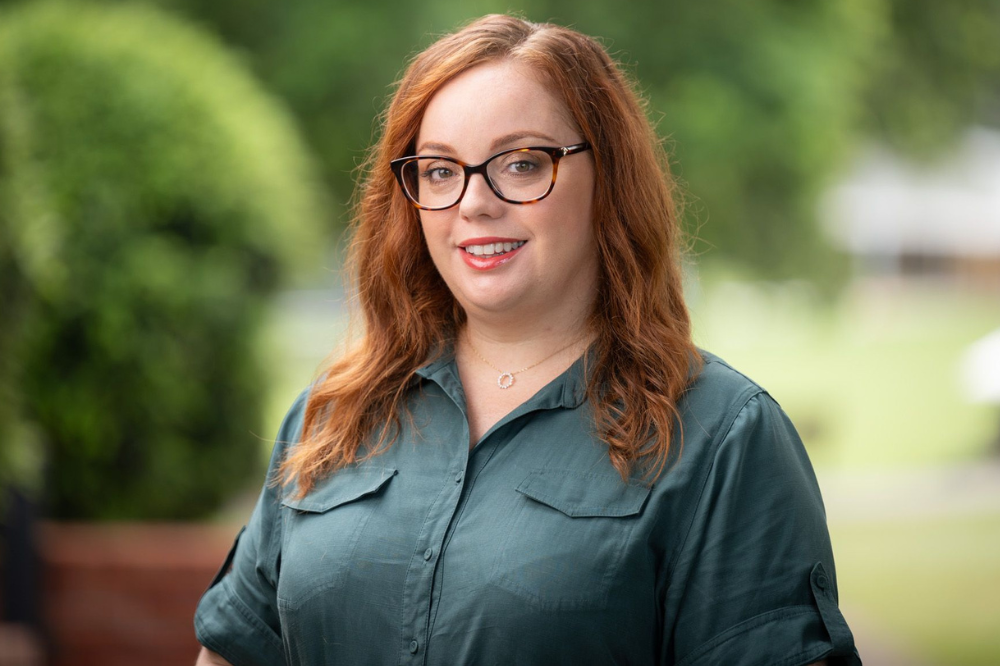
The rapid rise of Generative AI in schools has proven to be a curveball for many educators, especially those whose first years as a teacher involved blackboards and chalk. But for younger teachers like Laura Bain, the rise of AI in our schools has mirrored her own enthusiasm for this technology.
Having taught in classrooms since 2002, Bain has been at the coalface of technological change in schools, as a Digital Design Technologies teacher, as well as an ICT and eLearning coordinator.
Between 2019 and mid-2020, Bain was Head of Digital Learning and Innovation at The Springfield Anglican College, where she navigated the school’s shift to remote learning during the Covid Pandemic – an experience that saw her thrive where many others had struggled.
Indeed, Bain’s educational experience and passion has earned her some impressive titles, including Apple Distinguished Educator, Educator Hot List winner, TeachX Finalist, WomenEd Australia Leader, past Microsoft Fellow, futurist and changemaker.
Embracing change
Today, Bain is Head of Future Learning and Academic Operations at Matthew Flinders Anglican College (Flinders) – an Apple Distinguished School – in Queensland, where she is working to thoughtfully engage with AI on campus and with the whole College staff.
Examples include having students working with AI enabled Robots, learning about face and voice recognition technology, creating their own AI models through machine learning, interacting with AI enabled chatbots as an assessment tool.
The College has also trialled using AI for feedback and assessment and have set up a steering committee, alongside AI procedure and guidelines documents to ensure the College’s engagement with AI is appropriate and transformative in a supportive and positive way.
When asked how Flinders’ designation as an Apple Distinguished School has impacted her role as a teacher, Bain highlighted the powerful benefits of being part of a global community of educational innovators.
“As an Apple Distinguished School, Flinders is recognised for its skilled integration of technology into teaching and learning, ongoing commitment to professional learning and innovation, and robust technology infrastructure,” Bain told The Educator.
“This recognition connects Flinders with a global community, opening doors to additional professional development, new research, and a network of like-minded schools and educators worldwide. In my role as a leader, the Apple Distinguished School program has been instrumental in shaping my vision of how technology can optimally support educational practices.”
Navigating new waters (wisely)
Bain said that as AI continues to evolve and have more applications for teaching and learning schools, this technology is “proving to be quite the disruptive force” in education, as it has in many industries.
“At Flinders, we recognise the potential but also want to navigate these new waters wisely,” she said.
“I am fortunate to work alongside colleagues who are interested and open to engaging with this technology in their classrooms. We have a large group of educators working together to explore new tools and collectively discuss the outcomes and implications for teaching and learning.”
Bain said the aim is for the findings of this group to inform the College’s policies and strategy around AI.
“We have explored the potential for using AI in assessment and feedback, using AI chatbots with students as a form of formative data collection and as an individual tutor, using generative AI to bring student designs to life or enabling them to visualise things in new ways,” she said.
“Our Year 6 students also explore machine learning, voice and facial recognition through a unit working with AI enabled robots.”
Bain said this has provided opportunities for the school’s teaching and learning community to also discuss the AI technology that already exists in the iPad they use each day at school and the world around them.
“Students are genuinely fascinated by this and are curious to know how it works. It is really important to note that these uses have been very thoughtfully engaged with. We are looking for opportunities that enhance student outcomes or boost teacher productivity,” she said.
“Equity, security and suitability are all important considerations when looking at different AI tools and we have guidelines that guide our exploration in this area.”
‘We have a gift of breathing space right now’
Bain said the mantra Flinders has adopted is “Pedagogy is the driver, technology is the accelerator and passion is the fuel.”
“Our approach to integrating AI is no different to integrating any other emerging technology into learning. Intent and outcomes for teaching and learning need to be your first considerations,” she said. “AI will be to assessment what the "un-Googleable question" was over a decade ago.”
Bain said the most important advice she would offer to schools right now is “not to ignore AI in this time of seeming uncertainty.”
“We have a gift of breathing space right now that we may not have once these tools become fully-fledged, unavoidable and integrated into the ecosystems we use each day,” she said.
“Schools should really be considering what and how they are teaching and assessing now and looking at what role AI could play in processes.”

Bain pointed out that many schools have been developing AI Scales alongside their assessment tasks as well as procedures for citing AI use and providing students with access to approved tools.
“Being specific in this way keeps expectations clear, supports students in developing understandings about the ethical use of AI, helps to ensure data security and prevents the potential AI wild west from breaking out on campus,” Bain said.
“The emergence of AI also highlights the need to more critically consume content than ever before. This adds to the toolkit of skills students need to draw from to be considered truly digitally literate.”
Bain said that for teachers to be prepared for the AI age in education they need to develop some basic understandings and experiences with this technology.
“Rather than banning, blocking and making teachers using AI out to be lazy, leaders need to be giving teachers permission to explore this new potential and supporting them with explicit guidelines that will help ensure AI is being adopted safely, ethically and in ways that are going to enhance teaching and learning,” she said.
“This is an exciting time in education. There is no telling where this road will take us but it is a journey the most innovative schools will be the leaders of.”


